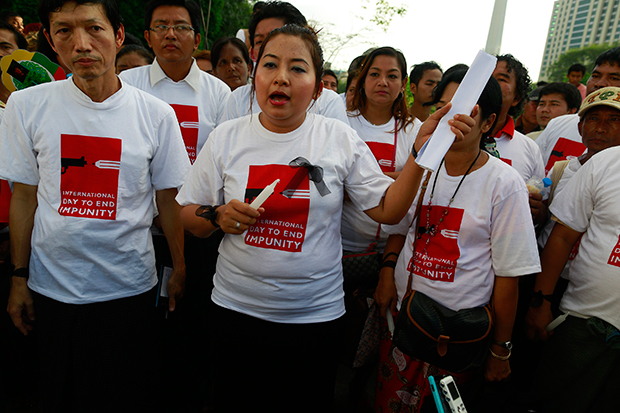
YANGON — A Myanmar court sentenced two reporters to two months in prison on charges of defamation, in the latest ruling that raises concerns about press freedoms as the country emerges from military rule.
The Myanmar Post's chief editor Than Htaik Thu and reporter Hsan Moe Tun were charged in February 2014, after their weekly newspaper quoted a military lawmaker purportedly making comments about his colleagues in the parliament having low educations.
The lawmaker, Maj. Thein Zaw, from the Mon state, denied saying this and filed the defamation case against the pair.
"The decision is a threat to media freedom," the journal's editor-in-chief Zin Thaw Naing said Thursday. "Myanmar's judicial system is not independent and is under pressure from the administration."
This is the first time journalists have been convicted of defamation since President Thein Sein's government took office in 2011. The charges carry a penalty of up to two years imprisonment.
Another 10 journalists are serving prison terms for other offenses and nearly 20 are facing trials.
Under a half-century of dictatorship, Myanmar regularly banned dissent and imprisoned journalists and other critics of the ruling junta. Despite dramatic changes since 2011, when a nominally civilian government came to power, journalists are increasingly being arrested and imprisoned.
Many in the media viewed the ruling as a message ahead of general elections scheduled for later this year.
"Jailing journalists with defamation before the 2015 general elections is a clear indication the government is determined to restrict freedom of press. They are determined to silence our critical voices," said Wai Phyo, chief editor of the influential private newspaper "Daily Eleven." He and four colleagues including the paper's CEO are facing a similar charge.
The government is also facing strong criticism from the local and international community for arresting and beating journalists during a crackdown on a recent protest.
An international media organization, the International Press Institute, which will be holding its annual congress in Yangon this month, called on the government to investigate the arrests and said the cycle of impunity needs to stop.